Dr. Danielle Jones, also known as ‘Mama Doctor Jones,’ is an obstetrician-gynaecologist and digital health educator. In her article, “The Highs and Lows of Being a Doctor Online,” she shares her experiences of navigating social media as a healthcare professional, highlighting both the rewards and challenges of connecting with patients online.
As healthcare professionals, we often meet people at their most vulnerable. While we’re trained to offer medical solutions, learning to truly understand and validate the emotional weight of our patients’ experiences is a skill that’s much harder to master.
I vividly remember an early experience as a medical student, supporting a woman through a miscarriage. No part of my medical education had prepared me to approach this from the perspective of the patient’s experience, nor had I been taught how to balance providing acute medical care with the universal need to feel seen, acknowledged and validated. But social media had.
Through my work online, I had read countless firsthand accounts of loss, infertility, birth and medical care surrounding those events. I had been witness to personal recounts of how deeply interactions with medical teams impact our patients and their wellbeing—for better and worse. Without realising it, in the moment, those raw, unfiltered stories people chose to share with me had taught me something textbooks and professors never could: how to meet someone where they are and truly care for patients in the ways they need.
Since that day, my guiding mantra has become: “While I may not be able to make everything better, it is my duty to never be the one who makes someone’s worst day worse.”
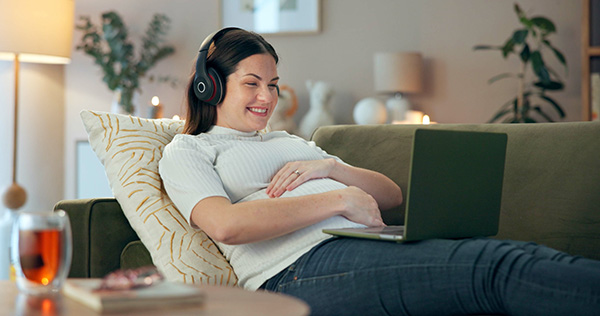
Social media as a space for growth
Social media has become more than just a place to share information; it’s where I’ve learned so much about being a doctor and a person. Each story, comment, and message has deepened my understanding of the challenges and biases that people face, both in healthcare and in life. I still remember the first feedback I received asking me to make my content more inclusive for gender-diverse individuals, and how I had never even once considered that. This blossomed from a simple comment into a passion for expanding the inclusivity of O&G education, not only online but in my real-life education and practice as well.
Social media has become more than just a place to share information; it’s where I’ve learned so much about being a doctor and a person.”
Finding my voice, listening to theirs
Social media platforms have allowed me to speak to millions on topics like political interference in healthcare and reproductive education. I’ve found my footing in discussing ethically difficult topics, pushing back against sexism, and championing patient rights through empowerment and self-reflection within the medical community. My online work is guided by a commitment to “finding my voice, listening to theirs.” This simple sentence is a daily reminder to use my voice not only to advocate and teach, but to also listen closely to the words of those who may not have the platform or privilege to speak out.
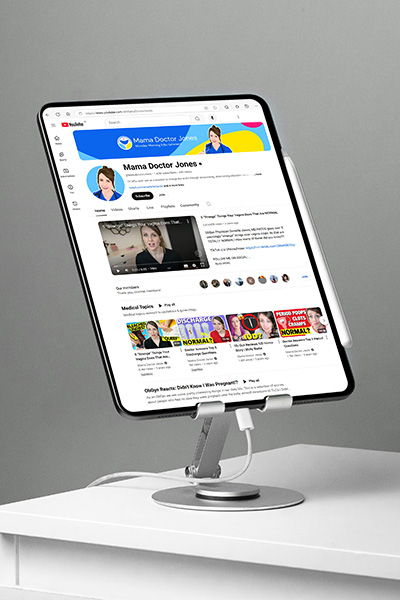
The power of online communities in healthcare
The digital landscape isn’t just for sharing stories; it’s also a valuable tool for healthcare. Through social media, I’ve been able to educate, promote preventive care, and address wellness with a much broader audience. By utilising “edu-tainment”— a form of education that is presented from an angle of entertainment balanced with empowering, evidence-based education, I’ve been able to build a truly impactful body of work.
Telehealth may be bringing care into people’s homes, but social media has the ability to bring empowerment and advocacy magnitudes greater than I ever could have achieved in clinical practice alone. I see these platforms as essential in providing resources, improving equity of access to health education, challenging stigmas, and building communities that people can lean on.
I see social media platforms as essential in providing resources, improving equity of access to health education, challenging stigmas, and building communities that people can lean on.”
Reflecting on the journey
Social media has taught me as much about listening as it has about speaking up. It’s a privilege and a responsibility to use these platforms not only for knowledge sharing but also for empathy and support. For medical professionals like myself, it’s a place to advocate for positive change in healthcare and to listen to the voices that often go unheard.
I encourage my fellow doctors to consider using social media as a space to share, listen, and learn. How has social media shaped your practice? How does it affect your patients? Let’s keep this conversation going, building a more inclusive, empathetic healthcare community together.


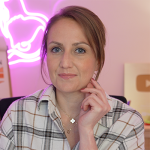
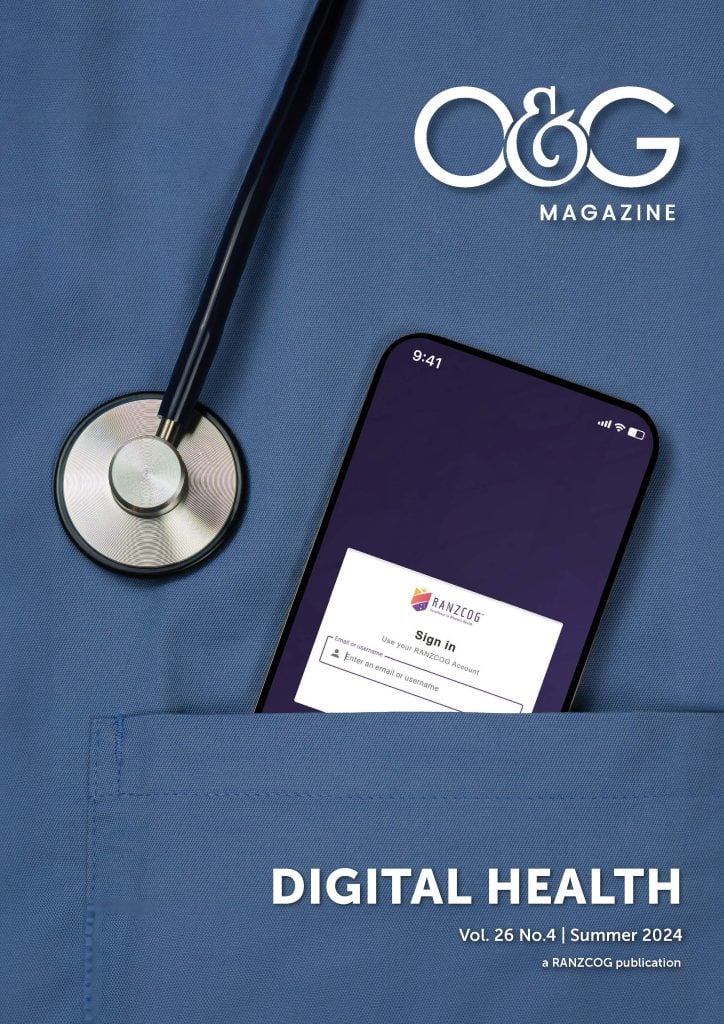
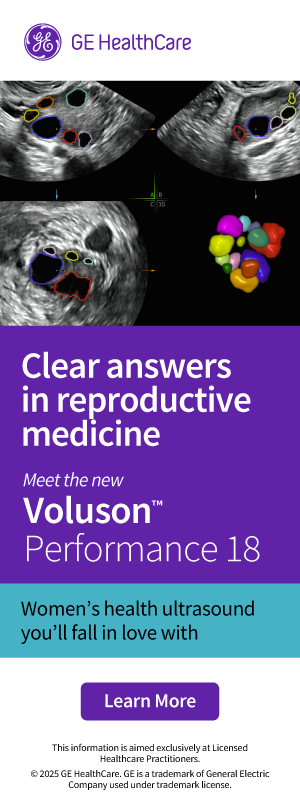

Great article! Love MDJ content !